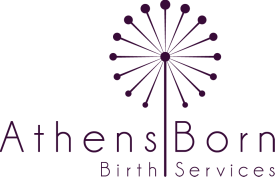Assessing breastfeeding can sometimes be a tricky business and it’s difficult to do it well in just one visit. There are a lot of questions that lactation consultants are considering when deciding what suggestions to make to a breastfeeding parent...pertinent medical history, what was the birth experience like, are there deep feelings or wishes for the breastfeeding relationship, were there complications during pregnancy, is there a partner and/or is that partner supportive of breastfeeding? Those are just a few of the things that are running through my mind when I’m meeting a new breastfeeding family for the first time.
I have tried offering single appointments to breastfeeding families that I’ve never met before and I always come back to the same place...I simply don’t feel like I’m providing the best possible care. One assessment and some recommendations are a good start, but there really needs to be some kind of follow up. Did the suggestions help? A little or a lot? Do the parents still have lingering concerns? Does the baby’s pediatrician have concerns? Often times, the plan needs to be adjusted as the baby grows and we learn more about what’s happening with the breastfeeding couple. And, the lactation consultant is usually choosing words carefully in order to avoid overwhelming new parents with too much information. With the one appointment system, too many families are left feeling like they have unanswered questions and they’re hesitant to spend money on a second appointment or call with concerns. They don’t want to “bother” the lactation consultant when they don’t have an appointment scheduled. This is the crux of the issue.
But...if I have a relationship with a family because we’ve met several times for prenatal visits, they’ve already shared their wishes, their hopes, their history, and I’ve gotten to know them well.
And...they automatically have one postpartum visit already scheduled where my lovely partner or I will be able to lay eyes on them and see how things are going. I trust that they will reach out if they’re struggling because they feel comfortable with us. This makes it possible for me to offer a one-time Breastfeeding Check-In to these families. Because it’s not actually a one-time appointment...it’s part of a longer series.
For families that I haven’t had the privilege of getting to know through prenatal visits, we do offer a two-visit option. These families are invited to book our Early Days at Home Package. There is plenty of time to focus on breastfeeding in these two visits, which usually take place in the first 3-10 days after birth...plus, with this package, we usually manage to fit in some help around the house, assistance with infant care, babywearing, or cloth diapering.
At AthensBorn, we’re proud to offer something for everyone who needs breastfeeding support! Please don’t hesitate to reach out to us if you have questions or would like more information. We’re here to serve our families <3
Take care,
Kate






 RSS Feed
RSS Feed

